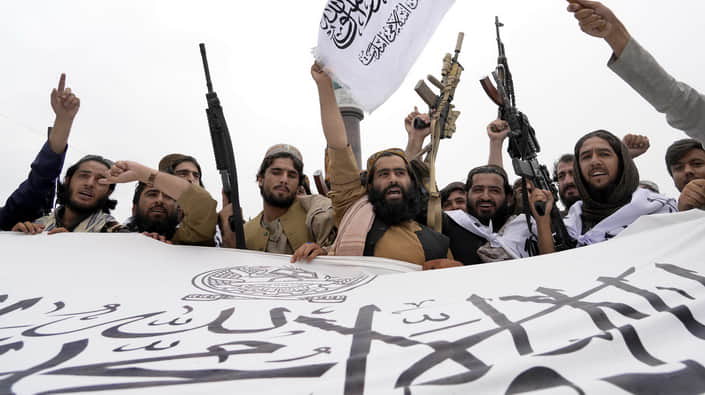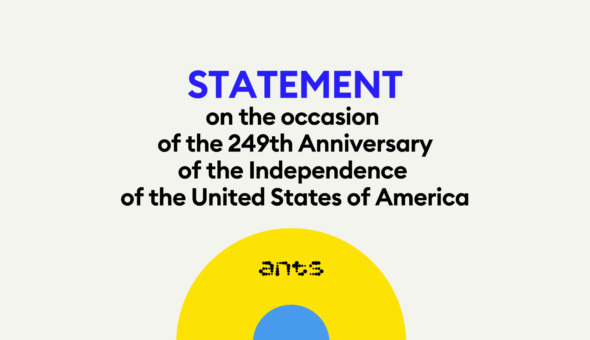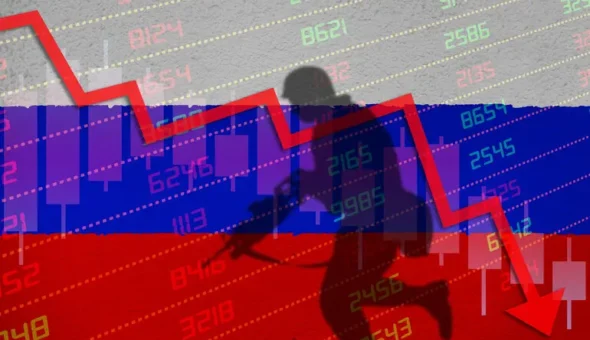
The USA is not just the leader in the democratic world, but also a country that sets the tone in international legal matters. Further confiscation of Russian assets around the world largely depends on the decisions of the United States.
The potential confiscation of russian assets is a high-profile and sensitive issue, but it is certainly not unique to the United States.
Since the 1990s, the United States has been responsible for imposing two-thirds of the world’s sanctions, including on the sovereign assets of Cuba and Afghanistan.
Both cases are only partially similar to the russian assets one, but they are useful for understanding the prospects for compensation to Ukraine at the expense of russian assets.
Only some goals were achieved, but according to the law
After the Taliban seized power in Afghanistan in August 2021, the Biden administration announced a freeze on Afghan sovereign assets in the US because it was unclear who had the legal authority to access the account: the government-in-exile or the new Taliban administration.
On February 11, 2022, the President of the United States issued an executive order to protect certain assets of Da Afghanistan Bank National Bank for the benefit of the people of Afghanistan.
All property and interests in the ownership of the Afghan National Bank – $7 billion – are blocked by him and cannot be realized in any way.
The Order also stated that the United States would transfer part of the frozen money – $3.5 billion – to compensate the victims of the terrorist act of September 11, 2001.
As part of the implementation of this order, part of the money – $3.5 billion – was transferred even before the February decision to the “Afghan Fund” created in September 2022 in Switzerland for humanitarian and economic assistance to the country in bypassing the Taliban. So far, the fund’s case can be considered successful, and no doubts have been expressed about the legality of its use of Afghan sovereign assets.
The fate of the assets was also the subject of legal proceedings.
In February 2023, a district court in New York ruled that the United States, as a class of plaintiffs, was not entitled to some of the Afghan assets to be used as compensation for the victims of 9/11 because US courts lacked jurisdiction to authorize their confiscation.
The decision also says that US courts cannot allow the federal government to use Afghan assets because that would mean the States recognizes the legitimacy of Taliban rule. The United States claims compensation for the terrorist act of September 11, 2001, but it cannot be done at the expense of frozen Afghan assets, the court concluded.
The goals were achieved, but not all according to the law
The opposite situation is in the case of Cuba. US economic sanctions against this country date back to the early 1960s, when the Cuban government, under the leadership of Fidel Castro expropriated the property of American citizens and corporations on its territory.
There is no exact amount of Cuban assets frozen in the US. However, approximate calculations suggest that it is more than $500 million.
The key regulatory act governing financial restrictive measures against Cuba is the Cuban Assets Control Regulations issued by the US Treasury Secretary on July 8, 1963.
According to the document, all property of Cuba and its citizens, which is under US jurisdiction, is blocked.
In 1964, President Lyndon Johnson signed into law a bill regarding lawsuits by US citizens against the Cuban government. The document also transferred certain Cuban sovereign assets into the ownership of the United States, which were not specified.
Proceeds from the sale of the granted assets are not available to US citizens whose property has been expropriated, as they will be used to cover administrative costs.
As of 2023, there is no public information about any actions by the US government regarding the mentioned Cuban assets.
In 1996, the Cuban Liberty and Democratic Solidarity Act was adopted. According to the law, victims of actions by Cuba had the right to sue for compensation for Cuban assets frozen in US jurisdiction.
Although the Foreign Sovereign Immunities Act protects their property from damage claims by private individuals, it provides a number of exceptions.
One is the amendment to 28 U.S.C. §1605(a)(7), which provides that an exception to immunity applies to suits against certain foreign countries, including Cuba, for the commission or support of acts of terrorism. Under this provision, US citizens are entitled to treble damages, plus attorneys’ fees.
In 2000, Congress passed a law requiring $97 million in frozen Cuban assets to be paid to the families of Cuban-American pilots shot down in 1996 by the Cuban government.
In 2006, a federal court in New York ordered the payment of $91 million from frozen Cuban assets in the United States to the families of two men who died after the failed US operation in Cuba in 1961.
russia: What path will the USA choose?
Since there are more than sixty years between the cases of Cuba and Afghanistan, the legal regulations in them are different.
At the time of the US actions against Afghanistan, the International Emergency Economic Powers Act and the National Emergency Act – all adopted after 1960 – were already in effect. In the case of Cuba, a number of laws were passed that were specifically related to the Cuban crisis.
In addition, Afghanistan as a state is not considered a party to the process; all US actions are directed against the Taliban, whose members are recognized, in accordance with Executive Order #13224, as specially designated global terrorists (Specially Designated Global Terrorists). Cuba has the status of a state sponsor of terrorism.
In the case of russia, the United States will most likely combine the previous experiences of Cuba and Afghanistan.
It is expedient to take from Cuba the adoption of niche legislation purely under the circumstances of russia’s war against Ukraine. While the development of the federal regulatory framework will allow more detailed justification of actions regarding russian money.
After the bitter lesson of seizing parts of Afghanistan’s sovereign assets, the United States will work in more detail on the confiscation mechanisms.
These points are supported by the fact that since the full-scale invasion, the Senate has already considered five confiscation bills that deal exclusively with Russian property, the latest of which is REPO.
Nevertheless, the case of the confiscation of russian assets will still be unique. Most likely, the russian federation will not be recognized as either a terrorist state or its sponsor. The USA mainly resorts to such measures when such actions are committed against itself and not against third countries. States will also have to choose a confiscation mechanism and a method of transferring funds to Ukraine.
The most important thing is to legitimately and effectively bring this process to its goal, i.e., compensation to Ukraine at the expense of russian assets. And the cases of Cuba and Afghanistan prove that the USA has such opportunities.
And that is why it is now important to find the political will in Washington to start the relevant processes.
Author: Sofia Kosarevych,
Dnistrianskyi Center
The research was carried out within the framework of the ANTS project “russian Assets as the Source to Restore the Ukrainian Economy”, which is implemented in cooperation with the National Democratic Institute (NDI) with the financial support of the National Endowment for Democracy (NED).



